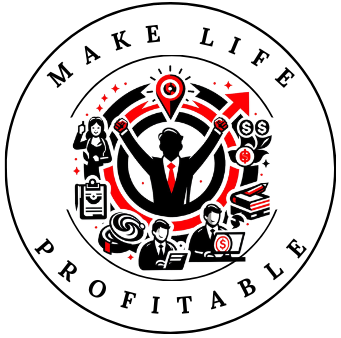
Storytelling in marketing isn’t just a gimmick—it’s a necessity. It humanizes a brand, making it relatable and tangible. When it comes to health and wellness, storytelling can transform dry facts into engaging narratives that really hit home.
Connecting emotionally with your audience is crucial. When you share stories about real people overcoming health challenges with the help of a product, you’re offering more than just a sales pitch. You’re giving hope, inspiration, and a sense of belonging. And let’s be real, everyone loves a good inspirational story.
Compelling stories in health and wellness often feature the classic elements of a good storyline—struggle, perseverance, and triumph. Take, for example, a fitness influencer who went from battling obesity to running marathons.
Or a story about someone who, despite crippling anxiety, found peace and balance through meditation practices. These are narratives that people can see themselves in, making them more invested in the journey and, by extension, the products being recommended.
In my life, I also have a site about fighting type 2 diabetes: www.diabeteshealthnuts.com. I tell personal stories on there about my struggle with the disease, how to prevent it and maybe even reverse it!
The psychological impact of storytelling can’t be overstated. Stories help the audience visualize their own potential success with the product. This makes them feel understood and boosts their confidence in the solution you’re offering. You’re not just telling a story; you’re building a relationship founded on empathy and trust.
Of course, in this online world, you will be telling your story through words on a screen or through videos, but the idea is the same. Make your stories rich with details and information and be accessible through comments (and answer them) so you can build engagement with your followers!
Crafting Authentic and Engaging Health and Wellness Stories

Creating authentic and engaging stories in the health and wellness space takes more than a sprinkle of creativity. Being real is key. Audiences are savvy; they can sniff out fake stories a mile away.
Start with personal experiences and testimonials. If you’ve personally used the product or know someone who has, share that journey. Genuine experiences resonate. They bring a sense of truth that spreadsheet data or clinical terms can’t match.
When I write about my struggles with diabetes, I give real life examples. I talk about how different aspects of the disease affect me. If I write stuff not even remotely related to common problems with type 2 diabetes, my readers will not be my readers for long! The story has to be relatable and authentic to the thing I am talking about.
Balancing factual information with emotional appeal is pivotal. While stories need a strong emotional component, backing them up with credible facts and data makes them believable. For example, if a supplement claims to boost energy levels, mix real user experiences with scientific evidence supporting those claims.
Focusing on transparency and authenticity builds trust. Avoid exaggerated claims or perfect scenarios. Real-life isn’t perfect, and neither are the people in your stories. A tale about facing setbacks and finding gradual improvement will feel way more genuine than an overnight miracle.
Your overall goal is to create a storyline that makes the audience feel seen and understood. When they see others’ struggles and triumphs reflecting their own, they’re more likely to trust your recommendations. Incorporating these elements ensures your stories hit the right chords of authenticity and engagement.
Effective Strategies to Optimize Health and Wellness Stories for Affiliate Marketing

Aligning your stories with SEO principles without sacrificing content quality is totally doable. While SEO helps reach a broader audience, delivering high-value content keeps them engaged. Ensure your storytelling feels organic, not forced to fit keywords.
Utilizing E-E-A-T (Experience, Expertise, Authoritativeness, Trust) principles elevates your stories. Share your personal journey or credentials where applicable. Feature expert testimonials or studies to back your narrative. Establishing these credentials builds a layer of trust that sets your content apart.
Identifying and using targeted keywords naturally within your stories is an art. Keywords should fit seamlessly into the narrative. Think of them as spices in a dish— they enhance the story but don’t overpower it. Make sure they feel like a natural part of the conversation.
Maximizing conversions involves integrating calls-to-action (CTAs) elegantly. A well-placed CTA doesn’t jar the reader; it feels like a natural next step in the narrative. Whether it’s a link to a product page, a signup form, or a discount code, make it subtle yet compelling.
Overall, the goal is to create a harmonious balance between engaging storytelling and effective marketing. This makes your audience feel valued, leading to a stronger connection and ultimately driving conversions.
Learn More
If you want to learn more about affiliate marketing and how you can tell your story in a compelling way and maybe even make money doing it, check out Wealthy Affiliate. The training you will receive is top notch. I have been a member there since 2018. The training is always fresh and updated and every day they add more.
You can start for free with no credit card required. You will get benefits of the program and pick a niche that might even help you make extra or full-time income! I make extra income at this point in my adventure. But you can take your business as far as you want to do with time and effort!


